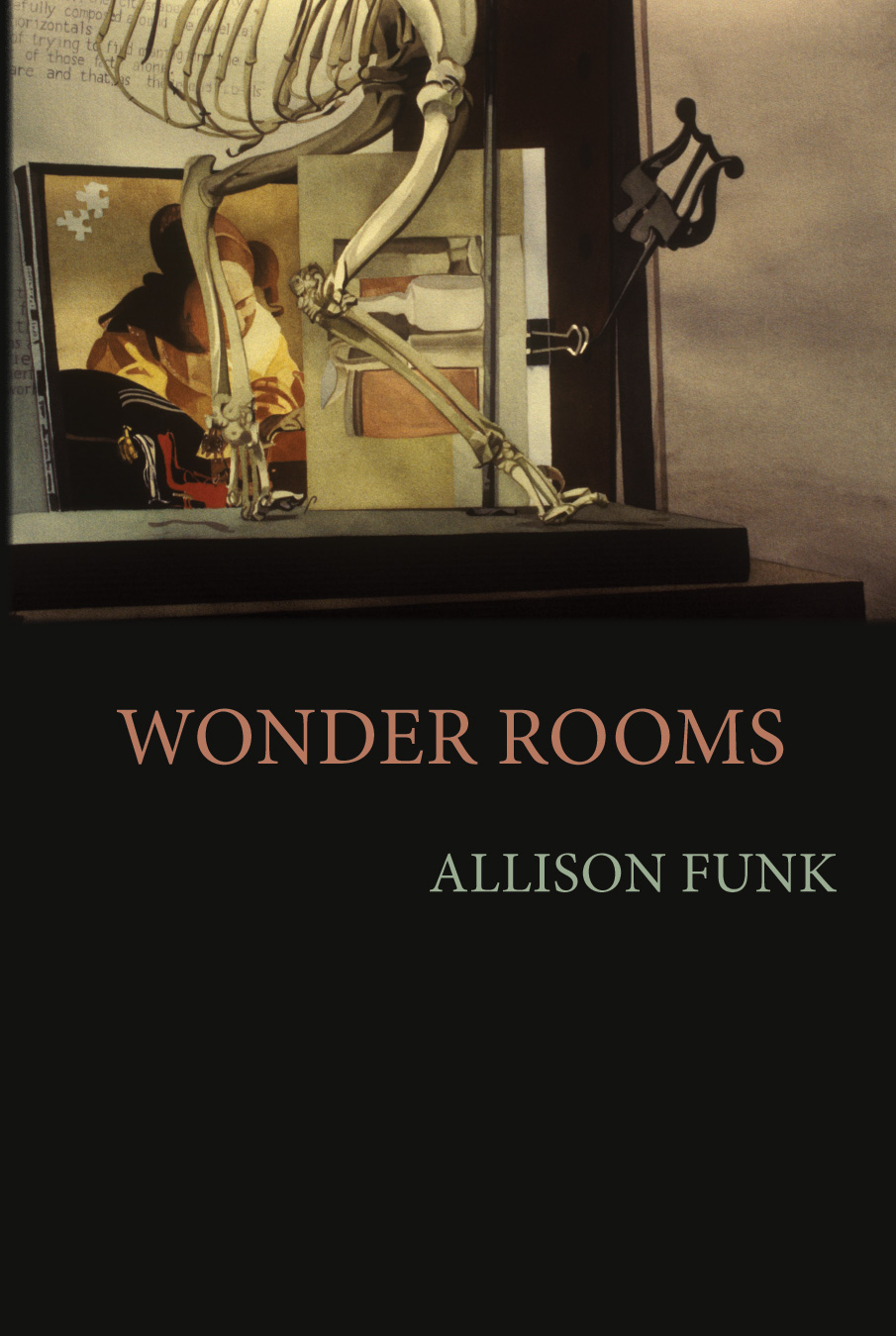     |
|
Centuries before modern museums, European wonder rooms housed artifacts and curiosities that mirrored the worlds of their collectors. In them, the New World met Old; superstition tangled with natural science; the monstrous roomed with the commonplace. In Allison Funk’s fifth collection of poems, Wonder Rooms, she is similarly in between: at once in the shelter of her childhood home and the chaos of a madhouse. Like Renaissance collectors before her, she invents a nomenclature to make sense of her world. Praise for Wonder Rooms The poems in Wonder Rooms, this powerful, heart-breaking, elegantly composed collection, are like the cabinets within such a room. Each is its own intimate interior space, where a reader is invited into the unknown. Some of these poetic spaces hold natural histories—crickets, dangerously beautiful corals, Provençal snails. Others open to the terrors of love and motherhood, still others to the chaotic orders of the bestiary. This is an amazingly gorgeous and intelligent book—a wonder, a pleasure, and an invitation to inward voyage. —Jennifer Atkinson In Wonder Rooms, her most intimate collection of poems, Allison Funk explores the intersection between the seen and the unseen. This territory of in-between is both fragile and terrifying. Nevertheless, she remains there, using “language as a lens to see through.” Such seeing can be harrowing, but the poems, no matter what they light upon, are stunning in all senses of the word. —Andrea Hollander In Wonder Rooms, Allison Funk gives us poems of uncompromising lyricism, many of which narrate obliquely the traumas of an adult son’s mental illness. This volatile material is contained in poems linked by images of “rooms,” as if the poet wants to contain the violence of his illness within the strictures of architecture. The wonder room becomes a metaphor for the strangeness of mental disorder and of existence itself. The book is a contemporary Stabat Mater. It bears much the same stark power as Michelangelo’s Rondanini Pietà, in which the two unfinished bodies seem to grow out of each other, are so intimate, yet finally so apart. —Donald Platt |
